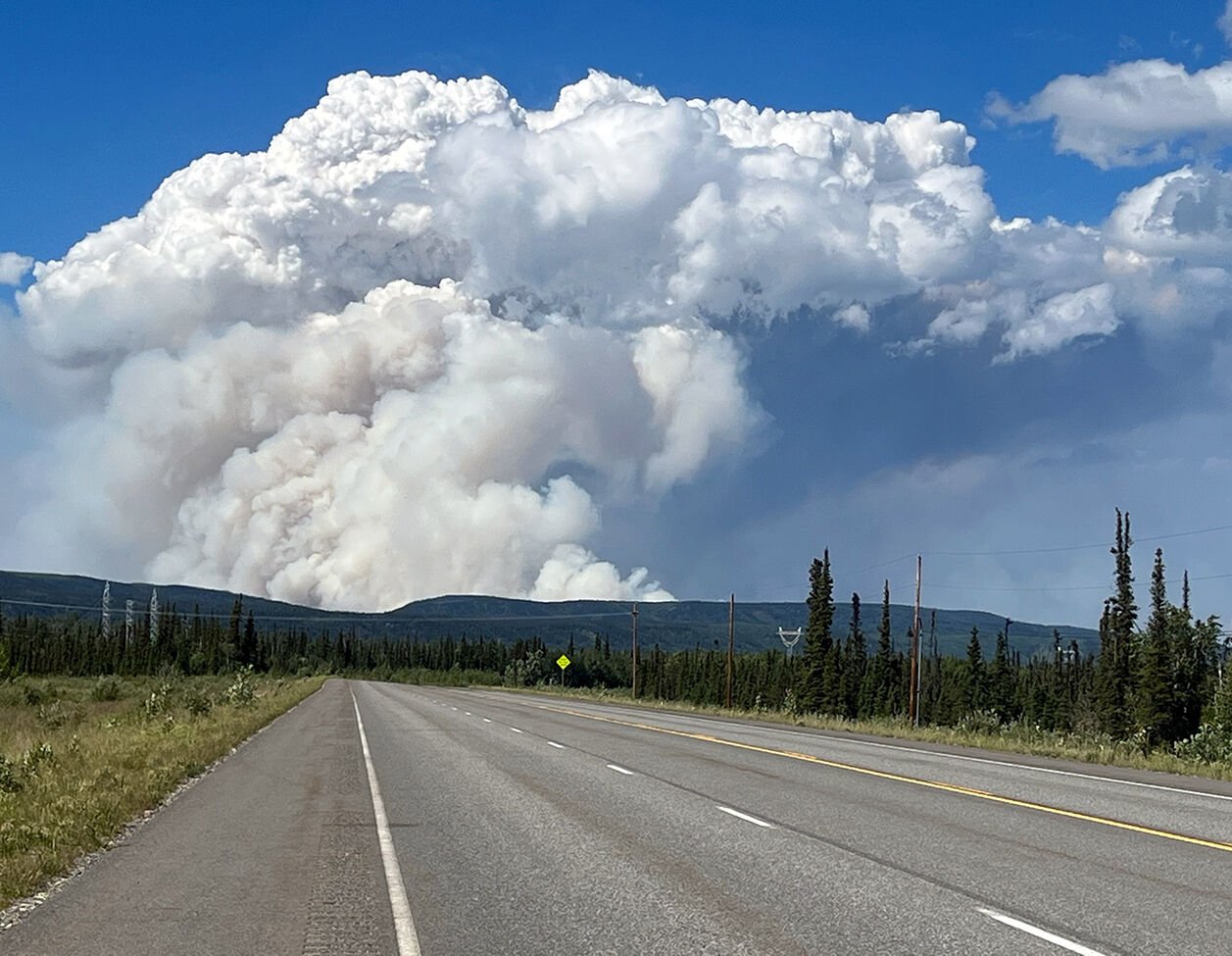Facing elevated air pollution levels caused by uncontrollable wildfires, the Alaska Department of Environmental Conservation is requesting a federal waiver to exclude 2022 and 2023 wildfire smoke from its air quality data.
Alaska seeks federal air quality waiver for 2022, 2023 wildfire smoke impact

Key Takeaways:
- Alaska DEC is seeking an EPA waiver to omit wildfire smoke levels from 2022 and 2023 in air quality inventories.
- Elevated PM2.5 levels due to wildfires are impacting compliance with federal air quality standards in Fairbanks and North Pole.
- Wildfires are deemed “exceptional events” beyond the state’s control.
- Unusual weather patterns and lightning strikes contributed to prolonged wildfire activity in 2022 and 2023.
- Public comments on the waiver request are open until January 30.
DEC Seeks Exemption for Exceptional Wildfire Events
The Alaska Department of Environmental Conservation’s (DEC) Air Quality Division is asking the U.S. Environmental Protection Agency (EPA) to exclude wildfire smoke levels from 2022 and 2023 in the state’s air quality inventory. Citing wildfires as “exceptional events” that are “unusual or naturally occurring,” the DEC argues that the smoke has skewed fine particulate matter (PM2.5) measurements, affecting compliance with federal standards.
Impact on Fairbanks and North Pole
Fairbanks North Star Borough’s nonattainment area—which includes the cities of Fairbanks and North Pole—has been designated a critical nonattainment area by the EPA since 2009 due to elevated PM2.5 levels. While wintertime woodstove smoke trapped by cold weather inversions is the primary contributor, the DEC emphasizes that wildfire smoke during the summer months has significantly impacted annual air quality readings.
The 2022 Wildfire Season
In 2022, Interior Alaska experienced high wildfire activity driven by dry conditions from April through June, unusually warm temperatures, and a record number of lightning strikes. Smoke from surrounding fires within a 200-mile radius of Fairbanks infiltrated the nonattainment area, lingering from mid-June to early July. Of the 50 fires around Fairbanks, most were ignited by lightning, with 20 considered “active smoke producers.”
“The dry conditions and gradient wind flow patterns significantly contributed to the production and transport of smoke throughout Interior Alaska,” the DEC’s waiver states. This prolonged presence of smoke resulted in unhealthy air quality levels and elevated PM2.5 concentrations beyond the state’s control.
Unusual Patterns in 2023
Similar conditions persisted in 2023 from late July to mid-August. The National Weather Service recorded over 20,000 lightning strikes in Alaska and Canada’s Yukon territory on July 24 alone. Although 2023 was one of the smallest wildfire seasons on record, the proximity of fires to Fairbanks and North Pole caused air quality monitors to detect elevated PM2.5 levels.
Arguments for the Waiver
“These wildfires will reoccur and are not controllable,” the DEC asserts in its waiver request. The department contends that including data from these exceptional events would unfairly penalize the state in meeting federal air quality standards. The DEC believes that PM2.5 concentrations would have been significantly lower if the wildfires had not occurred.
Waivers for exceptional events can be granted by the EPA, allowing for the exclusion of certain data from annual totals. “Such data should not be used in the determination of compliance,” the DEC argues, pointing to the uncontrollable nature of wildfires and their significant impact on air quality.
Mitigation Efforts and Public Participation
Despite the challenges, the DEC collaborates with the Alaska Fire Service and other organizations to issue air quality alerts during unhealthy spikes caused by smoke. Various state, federal, and tribal agencies also develop annual strategies to address and mitigate wildfires ahead of the summer season.
The DEC has released the waiver request for a 30-day public review, ending on January 30. Residents are encouraged to participate in the review process and submit written comments to provide feedback on the state’s request.
Looking Ahead
As Alaska continues to grapple with the effects of wildfires on air quality, the outcome of this waiver request could have significant implications for environmental policy and public health in the region. The DEC’s petition underscores the complex challenges states face when natural disasters intersect with regulatory compliance.











